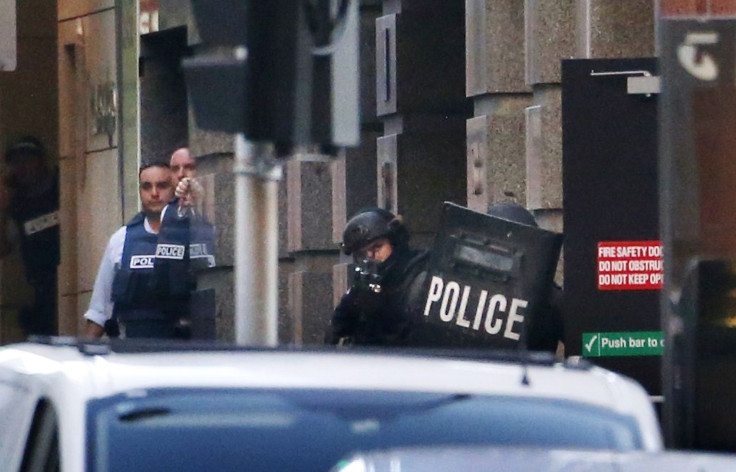ISIS-Sydney Connection: Australian PM Says Man Haron Monis Identified With Terrorist Group

Man Haron Monis, the militant, self-described Sunni Muslim cleric who was killed Monday by commandos after he took 17 hostages in a Sydney café, identified with the Islamic State terrorist group, also known as ISIS or ISIL, according to Australian Prime Minister Tony Abbott. Australian and Iranian officials said they had considered Monis, an Iranian refugee, to be a mentally unstable, violent extremist.
“As the siege unfolded yesterday, he sought to cloak his actions with the symbolism of the ISIL death cult," Abbott told reporters Tuesday morning local time, according to the Guardian. "Tragically, there are people in our community ready to engage in politically motivated violence.”
Investigators have yet to determine the motive behind Monis’ siege of the Lindt Chocolat Café, which left much of Sydney’s central district on lockdown for 16 hours. New South Wales Police Commissioner Andrew Scipione called the tragedy an “isolated incident” and requested that the public not “speculate” about the resolution of the situation, which left two hostages and Monis dead and four people, including a policeman, injured, the BBC reported.
But officials admitted there were warning signs about Monis that appear to have gone unheeded. “The perpetrator ... had a long history of violent crime, infatuation with extremism and mental instability,” Abbott said, according to the BBC.
Abbott’s statement aligns with remarks by an Iranian Foreign Ministry spokesman, as reported on Twitter by Tehran-based journalist Sadegh Ghorbani.
“#Iran FM Spox condemns #sydneysiege, says Tehran warned repeatedly about Haron Monis' mental condition to Australian officials,” Ghorbani tweeted.
Monis had a long rap sheet in Australia. In the past year alone, he pleaded guilty to sending insulting letters to Australian troops’ families and was charged with being an accessory to his ex-wife’s murder, CNN reported. He also faced dozens of sex-related charges in the time since he was granted political asylum by the Australian government in 1996, the BBC reported
The office of the most senior Shia cleric in Australia, Ayatollah Mohammad Hussein al-Ansari, issued a statement in response to the hostage situation. Monis said in an online posting that he was once a Shia Muslim, but that he converted to Sunni Islam, according to the BBC. “This crisis reminds us that we all, from all faiths and backgrounds, should unite as Australians to oppose such radicalism and build a peaceful and harmonious society," the statement said, according to the Guardian.
A former lawyer for Monis, Manny Conditsis, told Australian public news outlet ABC that he was likely a lone wolf and that he was isolated, CNN reported. "His ideology is just so strong and so powerful that it clouds his vision for common sense and objectiveness," Conditsis said.
Concern that Monis was connected to or at least influenced by an organized terrorist group arose when hostages were seen holding a black flag with white Arabic writing reminiscent of the ISIS flag in the window of the Lindt café. Officials have not yet said whether Monis was in contact with ISIS members in the Middle East.
Australia’s Parliament House is flying its flag at half mast in tribute to the hostages who died during the siege. Meanwhile, U.S. President Barack Obama said Monday that the U.S. and its allies will eliminate ISIS in time and that they will not allow it to find safe haven anywhere in the world, according to Reuters. Obama, who appeared with New Jersey Gov. Chris Christie at Fort Dix near Trenton, added that the coalition is making progress in its efforts against the terrorist organization in Iraq and Syria.
"Make no mistake. Our coalition isn't just going to degrade this barbaric terrorist organization. We're going to destroy it," Obama said. "We are hammering these terrorists.”
© Copyright IBTimes 2025. All rights reserved.





















